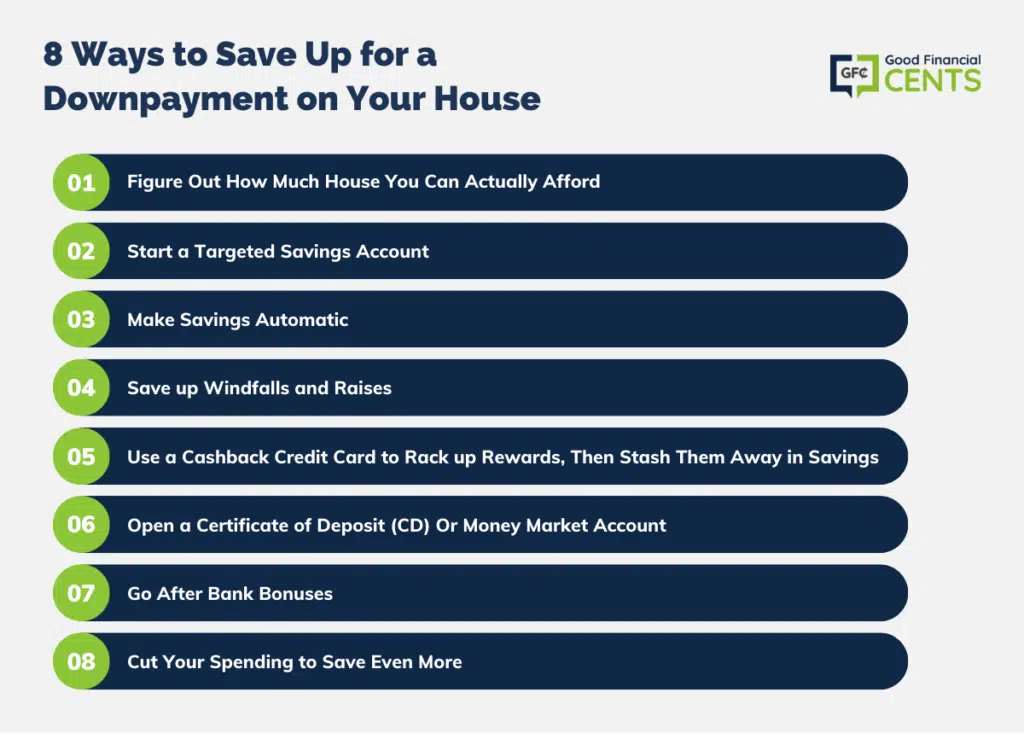When my wife and I purchased our first home, I was 5 months into a military deployment in Iraq. In a lot of ways, this presented a hardship since I wasn’t physically present to help see the process through.
Then again, I trusted my wife’s judgment so much that I was willing to become a first-time homeowner – even from the other side of the world. Even though we didn’t have a huge down payment, we had several factors working in our favor.
First, we qualified for a VA home loan, which is a type of mortgage that offers looser credit requirements and is backed by the federal government. Because my active military status helped us qualify for this perk, we were able to avoid paying PMI or private mortgage insurance.
Also, our VA home loan allowed us the flexibility to put down a much smaller down payment than we would have otherwise. Lastly, we were entirely debt-free when we became homeowners for the first time.
Table of Contents
Since we were taking on the burden of a mortgage, home maintenance, and upkeep for the first time, not having any other debts was a huge bonus in my eyes. When all was said and done, I returned home from Iraq as a first-time homeowner. As if returning home from a war zone to a wife I loved wasn’t rewarding enough, I returned to a house I actually owned!
What Do I Need to Buy My First Home?
Buying a home is as exciting as it gets, but there are plenty of financial details to consider before you take that first step. First and foremost, you’ll want to make sure your credit is in tip-top shape. By and large, the best interest rates and loan terms go to individuals with good credit. Generally speaking, “good credit” is any FICO score that is 720 or higher.
Once you figure out whether or not your credit needs improvement, you’ll also want to make sure you can truly afford a home and all the upkeep that comes with it. After all, your mortgage isn’t the only new expense you’ll have when you become a homeowner.
Beyond your house payment, you’ll also need to pay for utilities, taxes, homeowner’s insurance, major component replacements, and repairs.
While this percentage may vary some between lenders, most will only loan you money if your total debts – including your mortgage – encompass less than 36 percent of your gross income.
If your family’s gross household income is $100,000 this year, for example, your lender will want you to keep your total debts – including your mortgage and housing costs – under $36,000, or $3,000 per month.
Make sure to keep your debt-to-income ratio in mind as you start saving for your first home. If you’re carrying quite a bit of debt already, you should seriously consider paying it down as you save up your down payment.
Not only will paying off debt give you more wiggle room in your budget, but it may also allow you the flexibility to buy a larger or nicer home.
Related:
8 Ways to Save Up for a Downpayment on Your House
Once you have assessed your credit and have your debt situation squared away, one more major hurdle stands between you and your home purchase.
That’s right; it’s your down payment – or the amount of money you “put down” when you purchase your home.
This figure is crucial for a few reasons; first, putting at least 20 percent down on your new home can help you avoid paying private mortgage insurance, or PMI. Second, saving up a large down payment can help you secure a better loan with a lower interest rate. And third, saving up a large down payment makes it easier to afford a house you truly want instead of being forced to settle.
No matter how you cut it, your down payment is more important than many people realize.
And if you hope to become a homeowner in the near future, you would be wise to start saving right away. Want to get started? Here are eight tips that can help you build an epic down payment for your new home:
#1: Figure Out How Much House You Can Actually Afford
First things first. Before you start saving up for a down payment, it helps to know how much house you can actually afford – and how much you need to save. Most of the time, a housing affordability calculator can help with the first part.
By entering details regarding your personal income and debts, you can usually get a general idea of how much you might be able to spend on a home. Once you have a price range to shoot for, it’s fairly easy to figure out a savings goal.
If you hope to save at least 20 percent to avoid paying PMI, which you should, you’ll simply multiply your desired home purchase price by .20.
A $200,000 home multiplied by .20 will leave you with $40,000, which is the down payment you’ll want to shoot for. If you expect to save less, that’s perfectly okay. Shooting for 20 percent is a dream goal, but it’s just not feasible for everyone.
#2: Start a Targeted Savings Account
Once you have an idea of how much you need to save, you should start a targeted savings account that will keep your new housing fund separate from the rest of your savings. By keeping it separate, you’ll ensure your earmarked savings don’t accidentally get spent on something else.
And since you’re saving to hit a specific monetary goal, having those funds separate makes it a lot easier to monitor your progress.
When it comes to savings accounts, the best options are almost always online. Not only can you usually get higher interest rates with an online account, but you can transfer money quickly and easily with the touch of a mouse.
Related:
#3: Make Savings Automatic
If you’re worried you’ll get distracted and forget to save, you might want to make your savings automatic. By setting up automatic bank withdrawals or deposits, you allow the bank to take on the bulk of the work for you.
One strategy to consider is having your bank transfer a certain dollar amount from your primary checking to a targeted savings account every payday or on the first or last day of the month.
By having the bank do this automatically each month, you’ll never have to worry about it again.
Related:
#4: Save up Windfalls and Raises
While saving money from each paycheck can help you reach your goal in time, adding more money to the pile will help you get there even faster. If you get windfalls, bonuses, or raises at work frequently, make sure these “extra” sums of money don’t go to waste.
Instead of spending your tax refund on a new toy or a vacation, have it transferred to your down payment fund right away.
The same thing should be done with any end-of-the-year bonuses you get at work or other windfalls you might receive. By moving that money “out of sight and out of mind,” you can save it for a time when it really matters.
#5: Use a Cashback Credit Card to Rack up Rewards, Then Stash Them Away in Savings
If you don’t have a cashback credit card already, now may be the perfect time to get one. Across many different card types, some cashback cards offer between 1 – 5 percent cash back on every purchase you make.
By getting a cashback credit card, you’ll earn cashback for every dollar you spend on groceries, utility bills, and household expenses. If you let those rewards rack up over time, you could easily earn hundreds – or even thousands – of dollars towards the down payment on your new home.
Of course, this strategy isn’t for everyone. If you have no trouble paying off your credit card balance each month and avoid credit card interest like the plague, getting a cashback card can be a smart move. But if you have struggled with debt in the past, you should continue avoiding credit altogether.
#6: Open a Certificate of Deposit (CD) or Money Market Account.
If you’re not thrilled with the amount of interest you’re earning in an online savings account or simply want another way to beef up your savings, you can also consider opening a Certificate of Deposit (CD) or Money Market account. With both options, you’ll earn slightly more interest than you would in a traditional savings account, but with very little risk.
Generally speaking, Certificates of Deposit, or CDs, require you to put your money on deposit for a specific length of time in return for a predetermined interest rate or payout. If you know exactly how much you need to save and how long you plan to save for your home, a CD might be a smart bet.
A Money Market account can offer more flexibility since you aren’t required to commit your funds for a specific length of time. On the other hand, you may not earn as much interest as you would with a Certificate of Deposit (CD).
As an aside, you can sign up for a money market account with several excellent online brokers, including TD Ameritrade and E*Trade.
Related:
#7: Go After Bank Bonuses
If you think credit card rewards are easy to earn, you’ll love bank bonuses. Depending on the bank you open an account with, you might earn several hundred dollars just for signing up and meeting certain requirements.
To earn some bank signup bonuses, you’ll need to keep a certain amount of money on deposit for a specific length of time. To earn others, you’ll need to set up a direct deposit each month instead.
Either way, it’s crucial to understand all of the requirements for any bank bonus before you sign up. If you misread the fine print or don’t follow directions, you could miss out on your bank bonus altogether.
#8: Cut Your Spending to Save Even More
If you’re having trouble saving up your down payment, I’ve got one final piece of advice to offer: Cut your spending!
There are times when getting what you want requires some sacrifice, and this might be one of those times. If you can’t seem to save enough to get ahead, you must look for ways to reduce your spending and consumption.
This part may not be fun, but it will help you reach your goal of becoming a homeowner. To start things off, look for the easy ways and “low-hanging fruit” to cut from your monthly budget.
If you’re eating out at restaurants several times per week, for example, stop. If you’re paying a few hundred bucks for your smartphone package, switch plans, for goodness sake. If you’re withdrawing cash to spend each month and have no idea where it goes, make sure to stay away from the ATM altogether.
We all have our own budget drains to deal with, and dealing with yours is one of the best ways to save more money in the long run. So, sit down with your budget and brace yourself for a few painful cuts. It might hurt at first, but it will be worth it in the long run.

Final Thoughts
Buying a house can be absolutely life-changing, but it will be even more rewarding if you have your financial ducks in a row first. Beyond having good credit and keeping your debt at a minimum, a huge down payment for your first home will make life easier.
And the earlier you start saving, the better off you’ll be.
How much did you put down on your first home? Did you have to pay PMI, or did you avoid it?








Seriously its really tough to save money for buying thing either its for house or any other thing but your’s blog is really helpful for those who can’t manage their saving
Thanks Jerry!
Never considered bank bonuses, but that is a great opportunity to save for those responsible enough with the task. There are many great ways to save up for a down payment and out of all of these, I like the idea of a CD. It’s low-risk and it’s partially out of touch for those who might have trouble with dipping into savings unnecessarily.
Hi Jeff – That’s an important point about putting the money out of touch. If you’ve never been a saver in the past, you will have to limit your access to the cash to save it for its intended purpose. CDs work well because not only are they safe, but they run for specific terms during which you’ll be unlikely to withdraw from them.